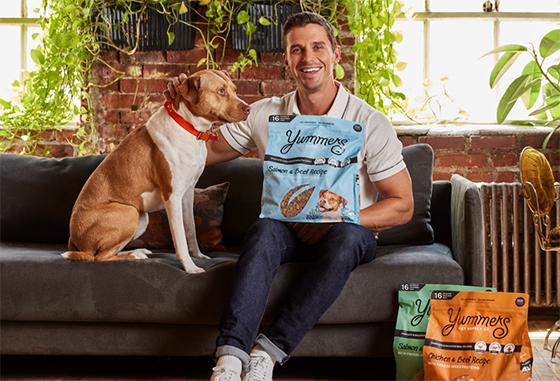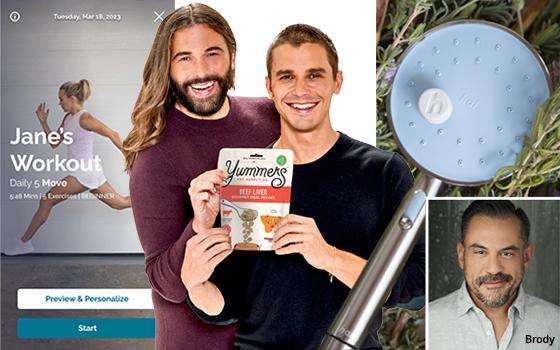
In order to cut through the white
noise of current marketing, new brands often find it most effective to connect with preexisting celebrities. But can you actually systematize the creation of brands that are married to star power or
to cultural memes? Caravan seems to be an interesting attempt to do just that. And the company's Co-Founder, Leonard Brody, has a history of developing celebrity aligned brands. Caravan, not
surprisingly, is partially backed by talent powerhouse CAA. You can listen to the entire podcast at this link.
MediaPost: How is Caravan different from typical approaches to product development and brand building by either D2C startups or larger
conglomerates?
advertisement
advertisement
Leonard Brody: I think it's important to keep it in the
context of what Caravan and CAA does, because we're a joint venture with CAA. That's really important to both the structure of how we build them and the reason why we build them. And if you think
about the universe of brand building, there's lots of people who sit inside that food chain. There's everything from licensing endorsement, which are really effective vehicles for building brands. We
tend to focus on the actual company building. So, we're building companies, not just brands.
The intention is that these have
longevity, a life of their own, an exit strategy. They have more venture style economics to them. And so, we tend to sit on that side of the fence. And I think CAA had been working in that world for a
very long time. They've been building companies, and when you're building them from the ground up. It's an incredible amount of hard work, and so you can only do so many of them at a time. And I think
the intention behind a co-founding Caravan was to take that process, systematize it, create efficiencies so that you can have more swings at that more frequently, and that was the whole model behind
why we built Caravan today.
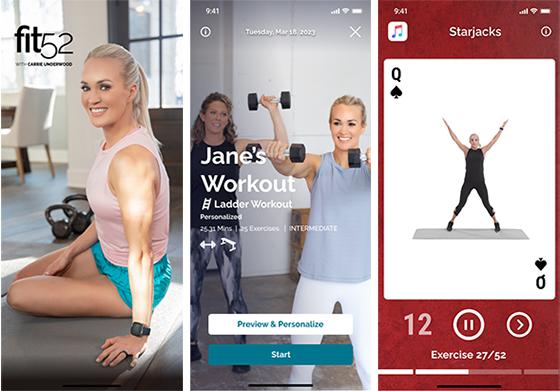
MP: So, you say, you start by building a company. But some of them are in very different segments,
with very different kinds of supply chains, expertise. I mean, you've got pet treats, pet mix-ins, but then you've also got a wellness brand, you've got a trivia app. Those are very different
companies, and very different economics for each of them. So how does that work?
Brody: One of the key differentiators about where we start in the process is we generally don't start with a client. We start with a market
opportunity where we see whitespace that we think is interesting and compelling. 90% of the time, there are few exceptions to that, our focus is twofold. One, we're looking for science backed
opportunities. There's a technological component, some intellectual property, a formulation, a new way of doing things. And then our real focus is on human, pet, and planetary wellness. Those are the
three areas that we really like. If you look at all of these companies, they all share that through line, from Hanx101 to Yummers. Hanx101 is very much about building your mental muscle and your
knowledge and your education. So, they all have different supply chains in some respects, but that, I would say, is the root DNA between all of them.
And so really, when you're manufacturing pet food, there's, of course, a nuance between that and beauty and human food, but once you understand the nuance of those
sectors, a lot of the through lines are the same. The real core question that we ask is, why does the world need it? Like, does the world need another pet mix-in brand or do they need a pet food
brand? Do they need another shower company? And can we make it 10 times better than what’s on the market today? And the talent is a piece of that story, but we're starting there. This isn't
just, oh we should build a makeup brand because celebrity X wants another makeup brand. It's a market opportunity first.
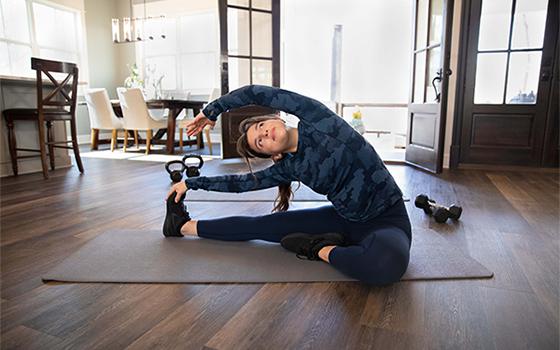
MP: So where does that celebrity
come in the process, and how do you map some of these ideas against the right celebrity?
Brody: It's a really important point in our world. We should have a company that we build that is an unbelievable
product, with or without a celebrity, meaning the celebrity is hugely important to the authenticity of the brand and the company, and that match is really important.
And, by the way, in the process when we're scoping the project, we're obviously keeping a very close eye on who in our universe would be a great authentic match, who
cares about this, who likes entrepreneurial endeavors, who would be a great co-founder with us in this project.
Once we've made the
assumption that this should exist in the world, then we start more aggressively looking for co-founders because it protects us, it protects the client, and it protects the market from having bad
products in it.

MP: And then what role does the celebrity play both in, say the marketing of the company, but also maybe even the finances of the company? I mean, we're all
very familiar with D2C brands that have celebrity investors in them, and you take on a lot of the marketing role. But what's the role of the celebrity in this model?
Brody: It's multifaceted. I would say, in the old days celebrities were used to signing the back of checks, not the front
of checks. And that model has now shifted. They're usually an investor on the cap table.
And then, in addition to that, they're typically playing the
role of the co-founder, so they're quite involved in the areas that they're good at. So often that is marketing and marketing strategy, sometimes it's product and product strategy.
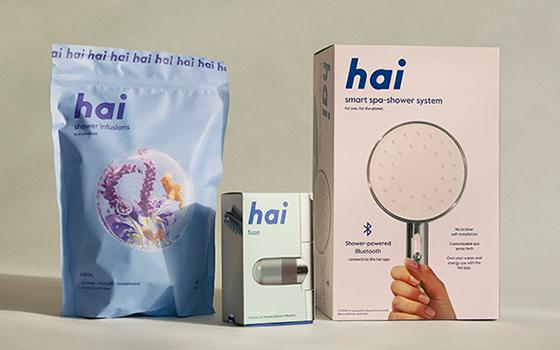
MP: Is there a particular pattern to the media strategies across these different categories?
Brody: Of course, the artist and the co-founder is involved in marketing, but again it goes back to the
authenticity of it. And so that would be everything from certain folks are more followed or more interactive on a particular platform, so somebody may be more well-known on TikTok, or maybe well-known
on Twitter. We'll build a marketing plan around that, and the marketing plan takes into account the medium that they communicate most on, the comfort at which they're taking certain positions. I mean,
it's quite organic. It's not that different than what you would think about with having a CMO. A CEO and a CMO of a brand would probably have a lot of conversations about it. Okay, we know we know the
demographic and the psychographic and who we're selling to, how do we feel comfortable about communicating that? And so, a CMO in many respects has to have a whole clear list of things that they're
comfortable with before they're willing to go to market. And I think it's no different with talent. I think you have those conversations around the case of Anthony and Jonathan [of the Yummers brand].
They're very, very active on Instagram, very active on TikTok, so those are great mediums, and they really wanted their pets to be part of the story. So, part of the whole narrative is their dogs and
cats, and the day-to-day, it was important that you saw them as pet parents, and you saw them for what they really were, which was folks that care deeply about animals. You'll see also in the
marketing side of what Yummers does, they do a lot of work in animal welfare and focusing on placing animals that need homes.
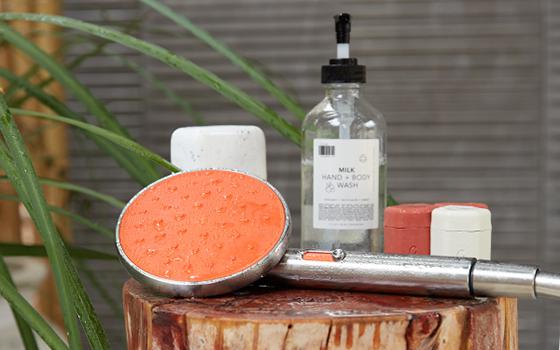
MP: How much of the marketing are you doing internally, and how do you organize this internally so you can amortize all of this across
these very different brands? I mean, you have a showerhead product and brand, a whole different technology, a whole different target, under the same roof as pet treats. Is this all done within
Caravan? Is part of this done with CAA?
Brody: It depends on where in
the food chain of marketing you're talking about. So, brand creation, we work very closely with CAA brand studio. They have an incredible team run by a woman named Alison Wilson, who's just
outstanding. They’ve been great partners in-house of actually saying, okay, we've got the sector, we've got the customer set, we think we can make it 10 times better. How do we build that brand?
Call it 80% of the time we're keeping that in-house.
And then when you start to develop copy, we do quite a bit of that inside the
companies directly. Inside Caravan we have the whole muscle around paid and programmatic. We have a great guy who leads our team, who focuses on programmatic and spend. And that world is so
mathematical. You have to stay on top of it daily, because the market in 2021 is totally different than the market in 2022, and even more different than it was this year. I'd say those are the big
three. And then all the organic posting and stuff that comes from a talent partner, that's really planned together, based on that voice being authentic and making sure it's representing both the
company and the individual well. But I would say, brand creation we do it mostly in-house, copy we mostly do in-house, paid, and programmatic we tend to do in house with some support externally. We
try to keep as much of it within us, within our group as we can.
